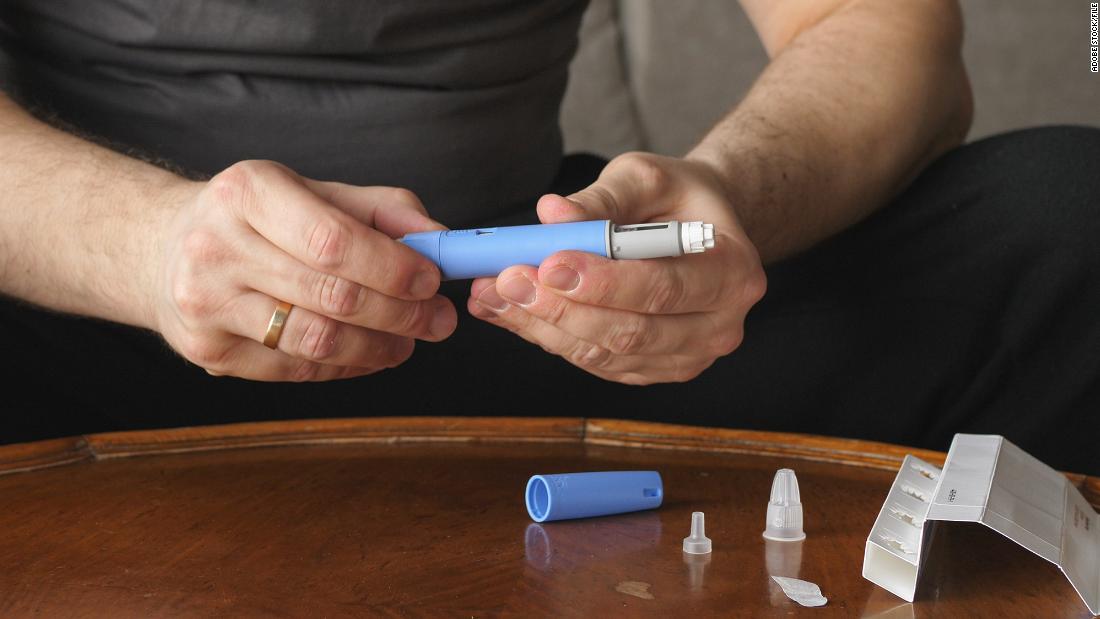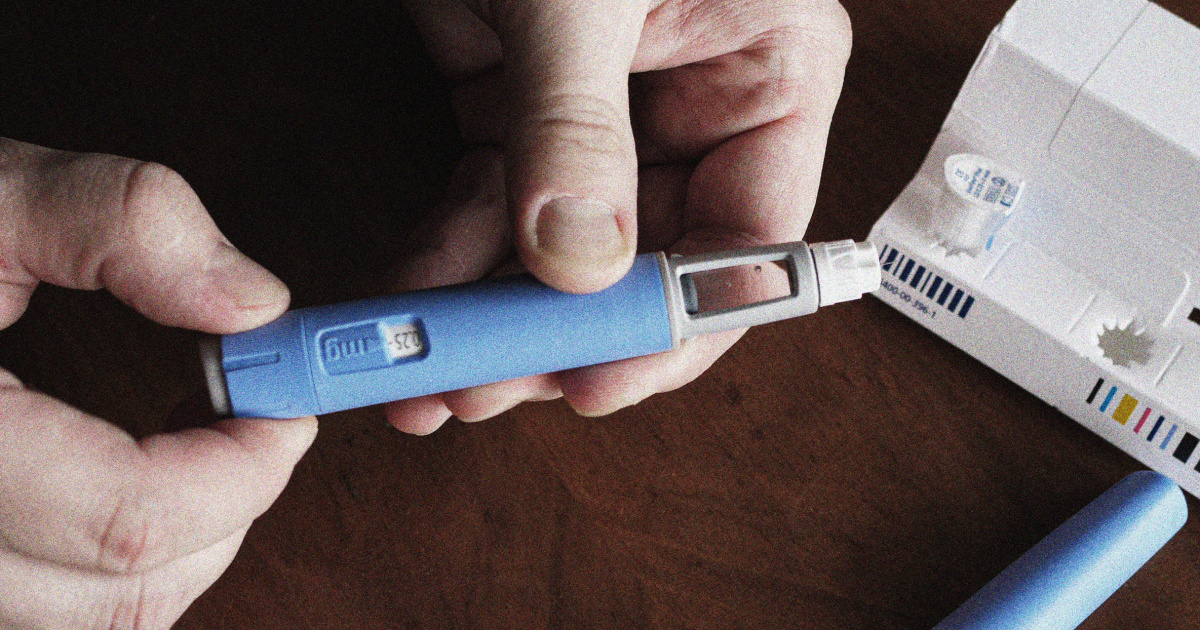Mark A. Moyad, MD, MPH & Martin M. Miner, MD, discuss the potential benefits of semaglutide, a newly approved weight-loss drug.
Introduction: The Road to Real Weight Loss Solutions
Host:
This is another great segment with Dr. Marty Miner — physician extraordinaire, clinical professor of Family Medicine and Urology at Miriam Hospital, and one of the pioneering minds behind a legitimate men's health center at a major institution. He’s been doing this for decades, focusing on helping men improve their health—both mentally and physically.
If anyone has questions about men's health centers, Dr. Miner is always on my shortlist of experts.
The "Roadkill" of Past Weight Loss Drugs
Host:
In this segment—one of our last together—I want to talk about weight loss. But more specifically, I want to title it: "The Roadkill That Was: The Damage of U.S. Weight Loss Drugs Until Recently."
Let me explain. I jotted down a list of past weight loss drugs that have come and gone:
- CNS stimulants (still around, but risky)
- Lipase inhibitors (like over-the-counter Orlistat)
- Opioid antagonists with amino ketones
- Sympathomimetics
- And, of course, sibutramine — marketed as Meridia. Huge global drug, then pulled for raising blood pressure and stroke risk.
Over my 30-year career, I’ve never been excited about pharmaceutical weight loss solutions. They all came with strings attached—sure, you might lose weight, but at what cardiovascular cost? You’d think weight loss would help the heart, but not with these meds.
Dr. Miner:
Absolutely. They were almost all stimulants—phentermine, fen-phen—they created a hypermetabolic, hyperdynamic state. People felt like they were on Adderall. Sure, they’d lose 5–6% of their weight, but their blood pressure would skyrocket. Long-term, it was unsustainable and dangerous.
Host:
Exactly. I don’t even want to give them credit. They were ineffective and definitely not heart-healthy.
Enter the “Game Changer”: Semaglutide (Wegovy)
Host:
Now let’s pivot to something different—Wegovy, or semaglutide. Did I say that right?
Dr. Miner:
Yes, that’s correct.
Host:
People are calling it a "game changer." I know that’s an overused term, but this time, it feels justified. The average weight loss is over 15%. That’s massive. For comparison, most older drugs gave you 5% weight loss—if you were lucky.
Dr. Miner:
That’s right. In fact, Wegovy shows 15–18% weight loss in studies running over 68 weeks with more than 4,500 participants. It’s extraordinarily safe and more effective than anything we’ve seen before, even rivaling bariatric surgery.
What’s more compelling is that the lower-dose version used in diabetics improves not just weight, but also cardiovascular and renal outcomes. These benefits are currently being studied in non-diabetics as well.
A Metabolic Revolution with Broader Benefits
Dr. Miner:
What we have now is a medication that doesn’t just reduce weight—it improves almost every metric of metabolic syndrome:
- Blood pressure
- Lipids
- Insulin resistance
- Weight
And it's administered just once a week via subcutaneous injection. An oral version also exists (Rybelsus), though we don’t yet know if it has the same effectiveness.
Host:
Wow. I don’t often see you endorse medications like this, so if you're saying this might be the real deal, I take notice.
Dr. Miner:
It truly is. It’s also an opportunity to change how we talk about obesity. Instead of labeling someone an “obese 45-year-old male,” we need to say “a male with obesity.” Language matters. We’ve stigmatized obesity and discouraged people from seeking help. This medication could be a safe, non-invasive alternative to surgery.
Barriers: Cost and Access
Host:
Here’s where I still have concerns: cost. It’s nearly $900/month out of pocket, and most insurance doesn’t cover it—yet. It was only FDA approved in June, and insurers typically lag by about two years before updating formularies.
Dr. Miner:
Exactly. If insurers understood the full-spectrum benefits of a 15% weight reduction, they’d see the long-term savings in chronic disease management. But for now, cost and limited coverage are major barriers.
Host:
That 15% is incredible. Take a 300-pound person—that’s 45 pounds off. And we haven’t even discussed the hormonal impacts. You must be curious about what this kind of weight loss does to testosterone levels.
Dr. Miner:
Absolutely. Bariatric surgery has shown that testosterone levels can increase by several hundred points in some men. I'd love to study whether semaglutide offers similar hormonal benefits without surgery.
Broader Health Outcomes: Beyond the Scale
Host:
Coincidentally, this same week the Cleveland Clinic published data showing that significant weight loss from bariatric surgery lowers risk of:
- Hospitalization
- Supplemental oxygen needs
- Severe COVID-19
So the weight loss benefits are not just cosmetic—they're life-saving.
Dr. Miner:
Yes, and if semaglutide can replicate those outcomes, it’ll revolutionize how we treat obesity—not just in endocrinology but across specialties like urology, cardiology, and mental health.
Looking Ahead: More Research, More Hope
Host:
You really think this is the first pharmacologic weight-loss tool that lives up to the hype?
Dr. Miner:
Yes. Though it's injectable, it's manageable. Oral GLP-1 agonists may eventually catch up. But for now, this is the first option that combines efficacy with safety and could be used beyond diabetes management.
Host:
And to be clear, this wasn’t done in isolation. In the trials, participants were also asked to:
- Reduce caloric intake by 500/day
- Do 150 minutes of exercise/week
So this drug augments healthy habits—it doesn’t replace them.
Dr. Miner:
Exactly. Diet and exercise remain critical to longevity. But this is the first tool that delivers substantial weight loss in a predictable, measurable way.
Final Thoughts: A New Era for Weight Management
Host:
Dr. Miner, thank you for helping me introduce this compound. I usually poke fun at weight-loss pharmacology, but I can’t this time. It’s the first medication that seems to pass every test—safety, efficacy, long-term benefits.
Dr. Miner:
I’m with you. I hope more physicians begin exploring it, especially in specialties like urology, where metabolic health and hormonal health are so closely tied.
Host:
Absolutely. Thanks again, Dr. Miner. I’ll see you at the next conference—we’ll talk more controversies then.
Semaglutide is a medication that has been approved by the FDA to treat type 2 diabetes and has also been approved for obesity management under the brand name Wegovy [1][3]. It helps with weight loss by suppressing appetite, which can lead to a reduced intake of food [2].
Semaglutide works by mimicking a hormone called glucagon-like peptide-1 (GLP-1), which is naturally produced by the body. GLP-1 plays a role in regulating blood sugar levels and appetite. Semaglutide affects several processes in the body, including increasing the release of insulin, reducing the release of glucagon, and delaying gastric emptying [2].
The increase in insulin helps lower high blood sugar, while the reduction in glucagon release also contributes to better blood sugar control. Delaying gastric emptying means that food stays in the stomach for a longer time, which can help with satiety and decrease appetite [2].
The typical dose of semaglutide for weight loss is 2.4 milligrams, administered weekly as subcutaneous (under the skin) self-injections [3]. While semaglutide has shown promising results in weight loss, it is important to note that its effectiveness is dependent on continued use, and some experts are skeptical about its long-term safety and limitations [1].
In semaglutide studies, participants experienced significant weight loss. In one clinical trial, participants who received semaglutide lost 5% or more, 10% or more, 15% or more, and 20% or more of their baseline body weight at week 68, compared to those who received a placebo [1]. On average, participants taking semaglutide lost 15% of their body weight [2]. Some individuals lost as much as 40 pounds while participating in a clinical trial of the drug [2].
In another study, after 68 weeks of treatment, the semaglutide group lost an average of 16% of their baseline body weight, equal to 37 pounds. This was compared to a 5.7% average weight loss, or 14 pounds, for those assigned to intensive behavioral therapy combined with a placebo [3]. These results demonstrate the significant weight loss potential of semaglutide in clinical trials.
There are a few ways to save on semaglutide for weight loss, which is available as the brand-name medication Wegovy. One option is to use a copay savings card from the manufacturer. If you have commercial insurance, you may be eligible to pay as little as $25 for Wegovy using this savings card [1]. More information about the copay savings card and other coverage options can be found on the Wegovy website [2].
It's important to note that the cost of Wegovy before insurance is around $1,627 per month, and coverage for weight loss drugs like Wegovy can vary widely depending on the type of insurance you have and your location [3]. The $25 copay card provided by the manufacturer may help ease the cost, but only if your insurance plan covers the medication [3].
A more affordable way to get semaglutide when insurance does not pay is to have your doctor fax a prescription to a compounding pharmacy like EmpowerPharmacy.com. Their price runs approximately $350 per month.
Last edited by a moderator:





/cloudfront-us-east-2.images.arcpublishing.com/reuters/2VTIOL4UBZKZJPPLJ6DEFQOS4Y.jpg)










